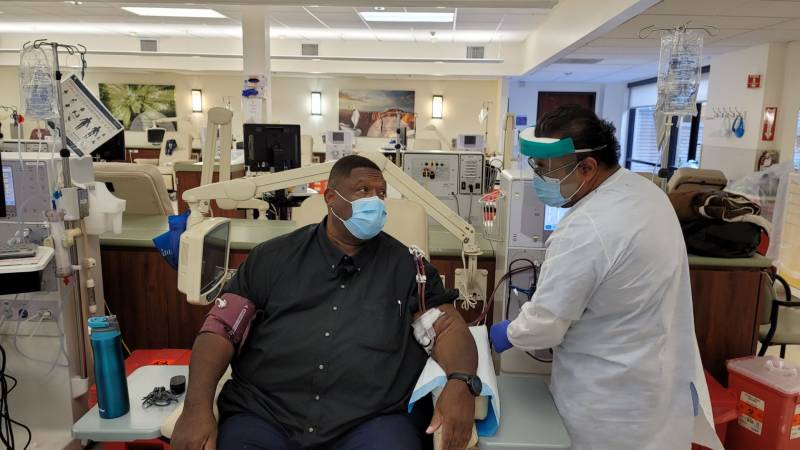Looking back now, DeWayne Cox says his path to kidney failure started in childhood. He lives in Los Angeles now, but he grew up on the South Side of Chicago.
"In the projects mostly, so I fought off gangs. I also had two parents that were both heroin addicts,” he says. “So there was lots of stress and a poor diet." He was diagnosed with high blood pressure when he was 16, which he managed well with medications, but they made him tired and he had to pee all the time. That really became a problem in his 40s when he got a job with Barack Obama’s presidential campaign in 2008.
“Because I was out in the field and I always had to go to the bathroom,” he says. “And most of the volunteers were young kids. It meant I had to keep up with all the college students.”
So for three months, he stopped taking his medications. Even now, he says he would do it again, but it was a turning point in his health. In 2009, his doctor told him he had kidney failure and he would have to start dialysis.
“I, like most people, didn't even know what my kidneys were, where they were or what they did,” he says.
But now, after going to dialysis for three-hour treatments three times a week for the last 10 years to have his blood cleaned, Cox is well versed in the science and policy of kidney disease.
He has taken a special interest in Proposition 23, the California ballot measure that would require all dialysis clinics in the state to have a doctor on site at all times patients are receiving treatment.

